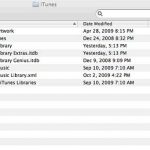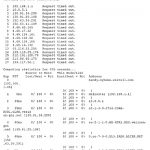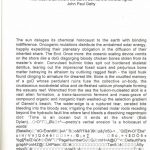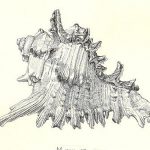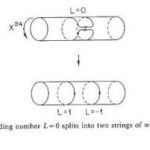2010
Abish's Alphabetical Africa is pondered here, in a critifiction by Louis Bury. Bury's text is written - like the novel itself - under constraint: each critical query begins with a new letter of the alphabet. Culminating in "Zeugma," the essay explores the poetics of Abish's linguistic experiment from somewhere close to the inside. (Doug Nufer's Negativeland gets a similar - though more subtle - treatment in another Bury piece.)
Examining Doug Nufer's Negativeland, a constraint-based text, Louis Bury adopts the same constraint as the novel - an approach NOT dissimilar to his treatment of Abish's Alphabetical Africa. In this case, the constraint is a prohibition against sentences lacking "some form of negation" - a commitment not unlike the affirmation of negativity.
Kate Pullinger thinks the Digital Fiction International Network is too hasty in dismissing e-books as "paper-under-glass texts."
An international group of digital fiction scholars proposes a platform of critical principles, seeking to build the foundation for a truly "digital" approach to literary study.
Marie-Laure Ryan argues that dysfunctionality in new media art is "not limited to play with inherently digital phenomena such as code and programs," and provides a number of alternative art examples, while also arguing that dysfunctionality "could [also] promote a better understanding of the cognitive activity of reading, or of the significance of the book as a support of writing."
R.M. Berry responds to Brian Lennon and Loren Glass by noting the crucial differences between the various forms of institutionalization that are endemic (or should be considered so) to their conversations on "The System."
Roderick Coover, Larry McCaffery, Lance Newman and Hikmet Loe explore the question of how desert ecologies are shaped through creative expression and actions. They consider, among others, how works by Edward Abbey, Robert Smithson and William T. Vollmann offer models for engaging ecological questions through writing and art.
Countering the persistent popular notion that electronic literature is just reading the classics under glass, Daniel Punday advocates for greater innovation, and more authorial autonomy, at the level of book design. Insisting on "authors' rights to design the interface through which readers encounter their books," Punday argues that digital book publishing should strive to emulate the medial status of games, "which remain messy individuals."
Brian Lennon weighs in on developing conversation about Mark McGurl's Program Era; Lennon's response to Loren Glass's riposte argues that Bourdieu's work is invoked by Glass as an answer, not a question, "without any effort to mark...why or how Bourdieu might be right - and without leaving any sense of the debates that generated and refined Bourdieu's positions."
2009
Through a close formal analysis of two new critical collections, Paul Benzon ponders the state of media studies as field. Exploring the material and temporal paradoxes of anthologizing new media and posthumanism, he argues that "each of these texts takes shape, succeeds, and fails under the pressures and possibilities posed by the scalar demands of information."
Sandy Baldwin investigates the manner in which a computer "ping trace" can be classified as a form of digital poetics, and discusses the underlying symbolic practices of both poesis and poetics that encompass coding and computation.
Loren Glass argues that Brian Lennon’s review of The Program Era is a “symptom of the very crisis he so ruthlessly anatomizes.” Glass suggests Lennon’s review exaggerates the anti-institutional quality of Mark McGurl’s work while displaying its own anti-institutional bias against naming “the System” it describes.
Taking seriously author Gary Hall's ground-up rethinking of the university, David Parry raises an issue not addressed in Digitize This Book, namely - what if Hall's own field of Cultural Studies has no future as a discipline in the university's digital future?
Sandy Baldwin explores the distinctions between non-digital poetry, digital poetry, and e-literature in general, and considers whether or not such distinctions are ultimately untenable.
In the wake of massive shifts in the function and purview of the University in the late twentieth and early twenty-first centuries, Brian Lennon considers two recent texts on the system of higher educational institutions and the academic practices that supports it.
Laura Dassow Walls explores how 'deliberative' reading practices may allow us to weigh the words we hear against the world we cognize - keeping alive the possibility of reading as a moral act.
Bruce Clarke reviews Joseph Caroll's Literary Darwinism and (like Laura Walls in her review of E.O. Wilson ten years earlier in ebr)identifies the LD project not as "consilience" so much as the colonization of the literary humanities by one branch of the biological sciences. In Caroll, Clarke discerns a Darwinian fundamentalism to match the Christian fundamentalism that can be observed in Clarke's own Lubbock, TX habitat.
John Durham Peters outlines "the media studies triangle," which consists of textual, social, and institutional approaches. He then stakes out another approach that considers what civilization itself has at stake in media change.
Lance Newman suggests Ecocriticism shares a problematic assumption with "green" capitalism: the idea "a livable future will result from billions of individual ethical decisions." Here he traces a burgeoning critical alternative that investigates the historical connections between global capital and the shifting structures of the "ecosocial."
Contrasting conventional notions of representational realism with the leaps of imagination underlying contemporary physics, Sean Miller explores the necessary role of an imaginary in sting theorists' search for a coherent "theory of everything."

